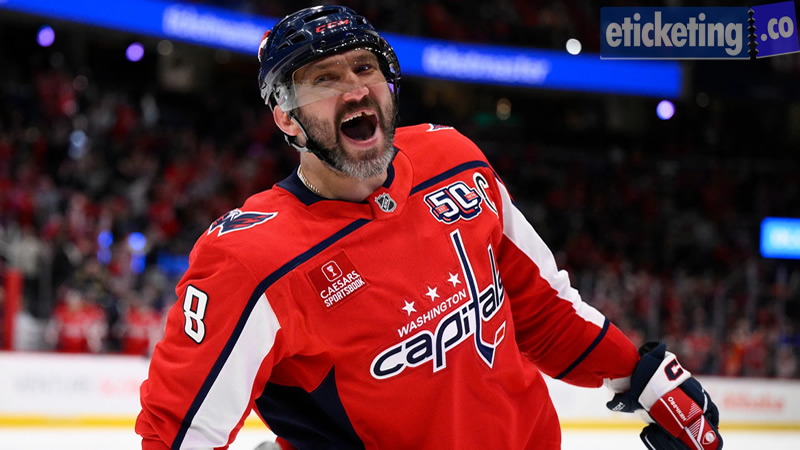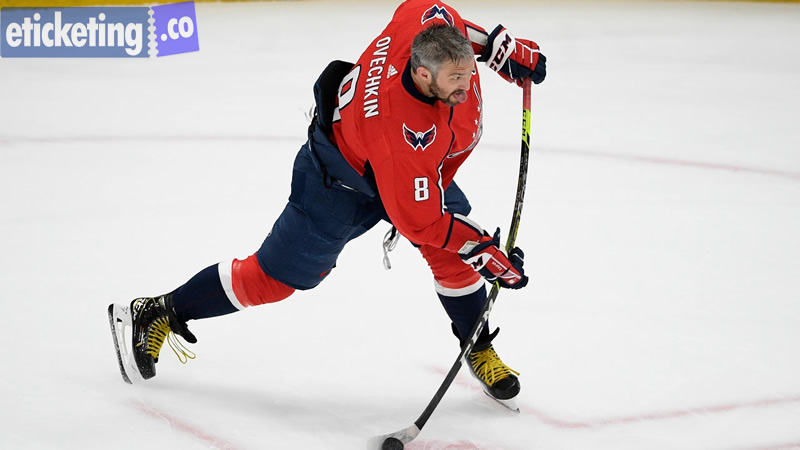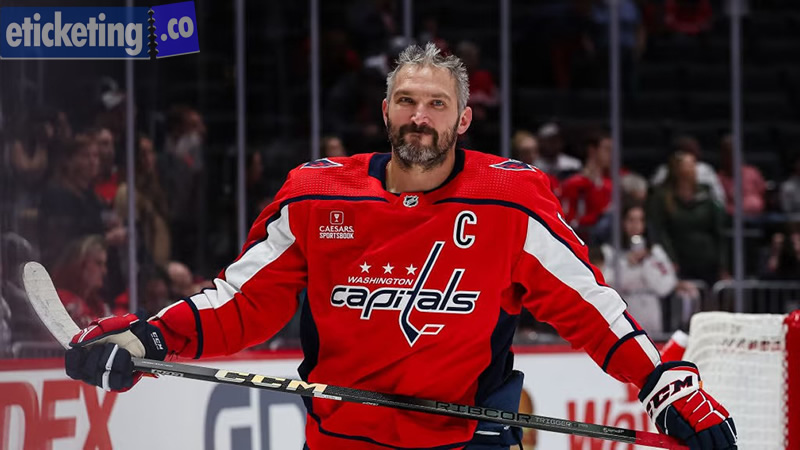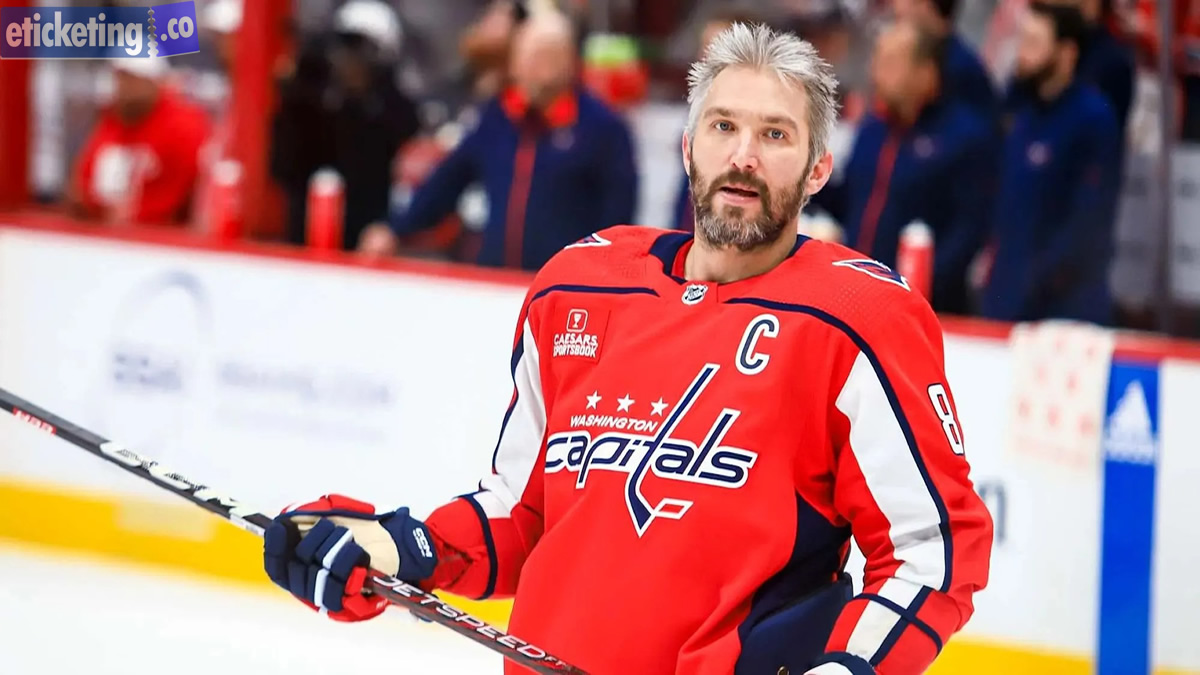As the Winter Olympic Milano Cortina 2026 approach, hockey fans around the world are anticipating the return of NHL players to the Olympic stage for the first time since 2014. Stars from Canada, the United States, Sweden, and Finland will once again don their national jerseys to compete for Olympic glory. Yet one name is conspicuously missing from the list of potential legends on ice—Alex Ovechkin. The absence of the Russian superstar, widely regarded as one of the greatest goal scorers in NHL history, is not due to injury, retirement, or a lack of interest. Rather, it is the result of complex geopolitical realities and ongoing bans affecting Russian athletes. Simply put, Alex Ovechkin will not be competing in the Winter Olympic 2026 because Russia remains barred from participating in team events, including Olympic ice hockey.
Secure your Olympic Ice Hockey Tickets now at eticketing.co! Visit our website to grab your tickets at discounted rates and be part of the thrilling action in Milano Cortina 2026. Don’t miss the chance to cheer on your favorite athletes as they go for gold!

Winter Olympic 2026: Russia’s Ongoing Ban from International Competition
At the heart of Ovechkin’s Olympic absence is the continued suspension of Russia by the International Olympic Committee (IOC) and the International Winter Olympic Ice Hockey Federation (IIHF). Following Russia’s invasion of Ukraine in February 2022, both organizations imposed sweeping sanctions on Russian and Belarusian athletes and federations. These bans have remaine in place through multiple review cycles, with the most recent decisions reaffirming that Russian and Belarusian teams will not be allow to compete at the Winter Olympic 2026.
Although the IOC has create a pathway for some Russian athletes to compete under the designation of “Individual Neutral Athletes (AINs), this route is limite to individual sports only. Team sports, including ice hockey, are explicitly excluded from this arrangement. Therefore, there will be no Russian hockey team at the Winter Olympic Milano Cortina 2026, regardless of whether the players are willing to compete without the Russian flag, anthem, or uniform. You Can Read Winter Olympic 2026: T.J. Oshie Retires After Illustrious Career in Olympic Ice Hockey
Ovechkin’s Olympic Legacy—and Its Abrupt Halt
Ovechkin’s Olympic dream has always been personal. Born in 1985, Ovechkin was raised in a sports-focused household—his mother, Tatyana Ovechkina, won two Olympic gold medals in basketball for the Soviet Union. From a young age, he spoke of his desire to win an Olympic gold medal for Russia. Despite his incredible NHL achievements—including over 850 goals and a Stanley Cup title with the Washington Capitals—Ovechkin has often cited Olympic success as one of his career’s unfinished goals.
His Olympic journey has been both eventful and frustrating. Ovechkin competed in the 2006, 2010, and 2014 Olympics, but the Russian team failed to medal in each of those tournaments. In 2018, when Russia won gold in men’s hockey as “Olympic Athletes from Russia,” NHL players, including Ovechkin, were barred from participating due to a dispute between the NHL and the IOC. He was again denied a chance in 2022, when the NHL withdrew its players because of COVID-19 complications. Now, with NHL participation reinstated for 2026, the door should be open—but it is politics, not policy, that slams it shut.

IOC and IIHF Draw Clear Lines
The IOC’s May 2025 statement reaffirmed the Russian Olympic Committee’s suspension and clarified that Russian teams will not be eligible to compete in any capacity at the Winter Olympic 2026 Games. This decision came after Russia attempted to include athletes from illegally annexed Ukrainian territories in its Olympic structure, a move condemned by the international community.
Simultaneously, the IIHF extended its suspension of Russian and Belarusian teams through the 2025–26 season. The IIHF cited not only political pressure and safety concerns but also the need for fair competition and unified governance in the sport. This means no Russian national hockey teams will appear at World Championships or the Olympics, closing all viable international doors for Ovechkin.
No Neutral Team Option for Hockey
While there has been discussion about allowing Russian athletes to compete under a neutral flag, the IOC has made it clear that this applies only to individual athletes. In sports like Winter Olympic figure skating, cross-country skiing, and biathlon, Russian athletes may appear without any national symbols if they meet strict eligibility criteria. However, team sports require organized national entries, and forming a “neutral” hockey team from Russian NHL players would violate both the spirit and the rules of this compromise.
Moreover, the formation of any type of neutral hockey team would require cooperation from multiple organizations—the IOC, IIHF, NHL, and NHLPA. None of these bodies have indicated support for such a proposal. Consequently, Ovechkin and his peers, such as Evgeni Malkin, Kirill Kaprizov, and Igor Shesterkin, will be watching from the sidelines, not competing on the Olympic stage.

Ovechkin’s Response and Legacy
In public interviews, Ovechkin has expressed disappointment but has also acknowledged the circumstances. It’s crazy, but it is what it is, he said when asked about the Olympic ban. He has not directly criticized the IOC or IIHF, instead choosing to focus on his NHL career, where he continues to chase Wayne Gretzky’s all-time goal record.
At 40 years old in Winter Olympic 2026, this was likely to be Ovechkin’s final Olympic appearance. His absence marks not only the end of a personal journey but also a symbolic loss for the Olympic movement. Ovechkin is a generational player, a bridge between the Soviet hockey legacy and the modern NHL era. His presence would have added gravitas, excitement, and international flair to the tournament.
The Bigger Picture: Winter Olympic Ice Hockey Without Russia
The absence of Russia—historically one of the dominant forces in Winter Olympic ice hockey—has broader implications. Olympic tournaments have often been defined by matchups like Russia vs. Canada or USA vs. USSR, games that carry not only sporting significance but also political and cultural resonance. Without Russia, the Winter Olympic 2026 tournament loses one of its most compelling rivalries.
Olympic 2026 fans worldwide can book Winter Olympic Tickets from our online platforms eticketing.co Fans can book Olympic Tickets on our website at discounted prices. Experience the thrill of the Games in Milano Cortina and support your favorite athletes as they compete for glory.
From a competitive standpoint, Russia’s exclusion also deprives the Olympics of some of the world’s best players. The NHL has become increasingly global, and Russian stars play key roles on many top teams. Their absence will be felt not only by fans but by their NHL teammates and competitors who relish the opportunity to test themselves against the best.

Could Things Change Before Winter Olympic 2026?
While some optimists hope for a late policy shift, it appears increasingly unlikely. The IOC and IIHF have remained firm in their positions, emphasizing that participation in international sport is a privilege, not a right, and one that is tied to adherence to international norms. Unless there is a dramatic shift in the geopolitical landscape or an unprecedented diplomatic breakthrough, Russia’s hockey ban is here to stay—at least through Winter Olympic 2026.
Even if an opportunity were to arise, age and timing may work against Ovechkin. The physical demands of Olympic competition and the pace of international play at age 40 could make participation risky or impractical.
A Silent Rink: How Politics Benched One of Hockey’s Greatest at the Winter Olympic 2026
Alex Ovechkin’s absence from the Winter Olympic 2026 is not merely the story of a player left out of the biggest tournament of the year. It is the story of how geopolitics, war, and international policy have intersected with the world of sport in a profound and painful way. It is a reminder that athletes, no matter how gifted or iconic, are not always in control of their destinies—especially when international conflict enters the arena.

For fans of hockey and admirers of Ovechkin’s greatness, the Winter Olympic 2026 will feel incomplete. The tournament will go on, and it will feature extraordinary talent and unforgettable moments. But the absence of one of hockey’s greatest legends—and the country he represents—will be a shadow on the ice that even Olympic gold cannot fully erase.
Experience the magic and excitement as fans from around the world gather to celebrate the spirit of the Games. Secure your Olympic Opening Ceremony Tickets now and create memories that will last a lifetime at the unforgettable Winter Olympic 2026.
